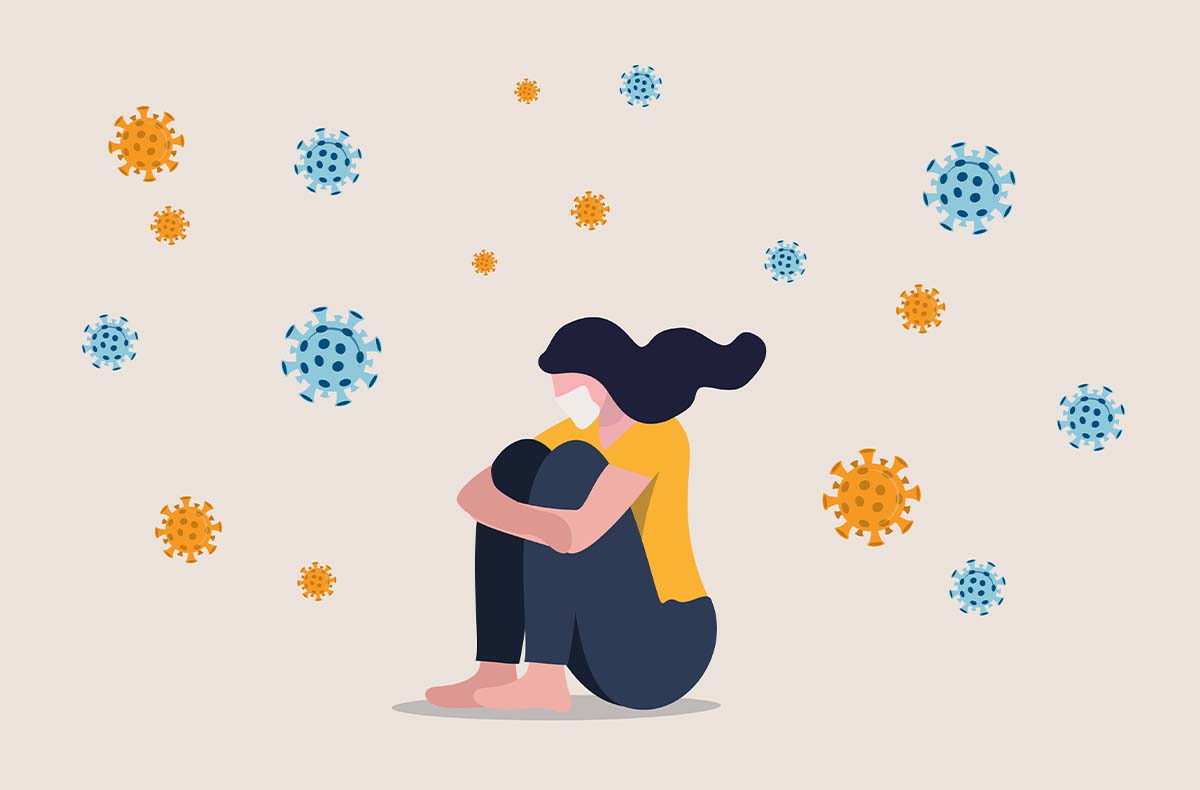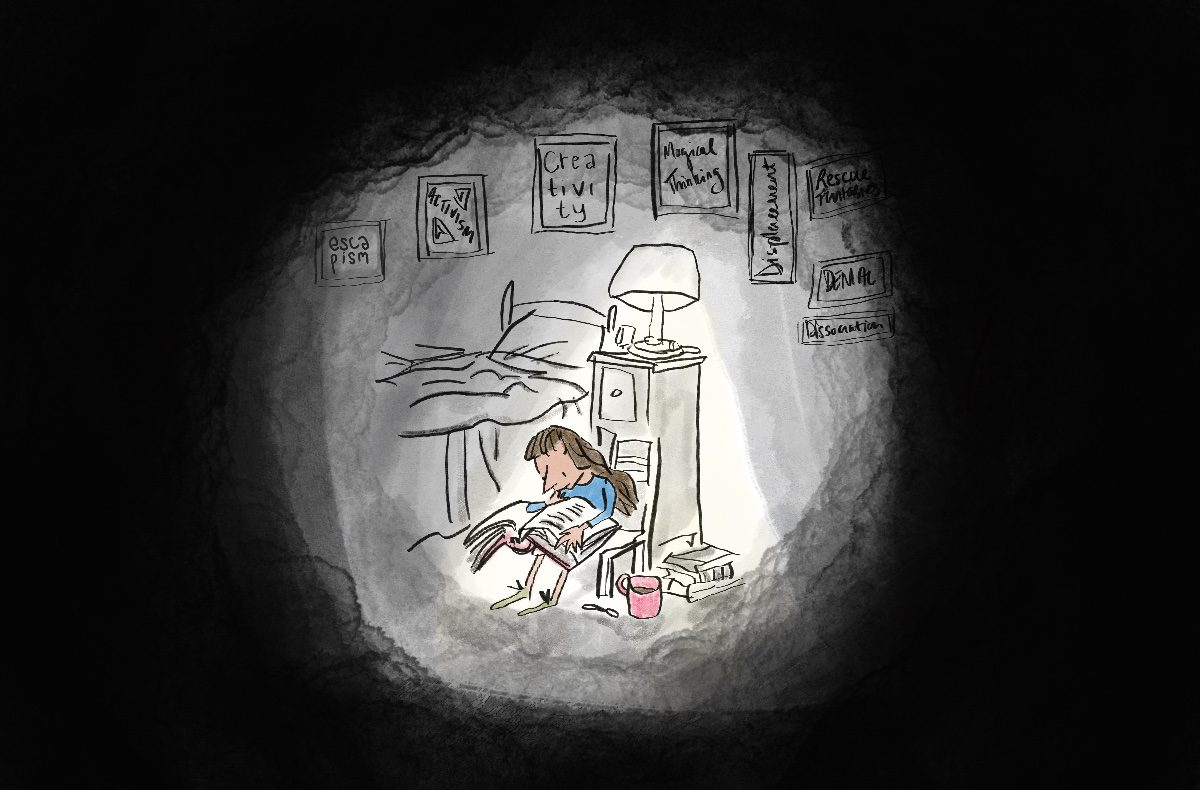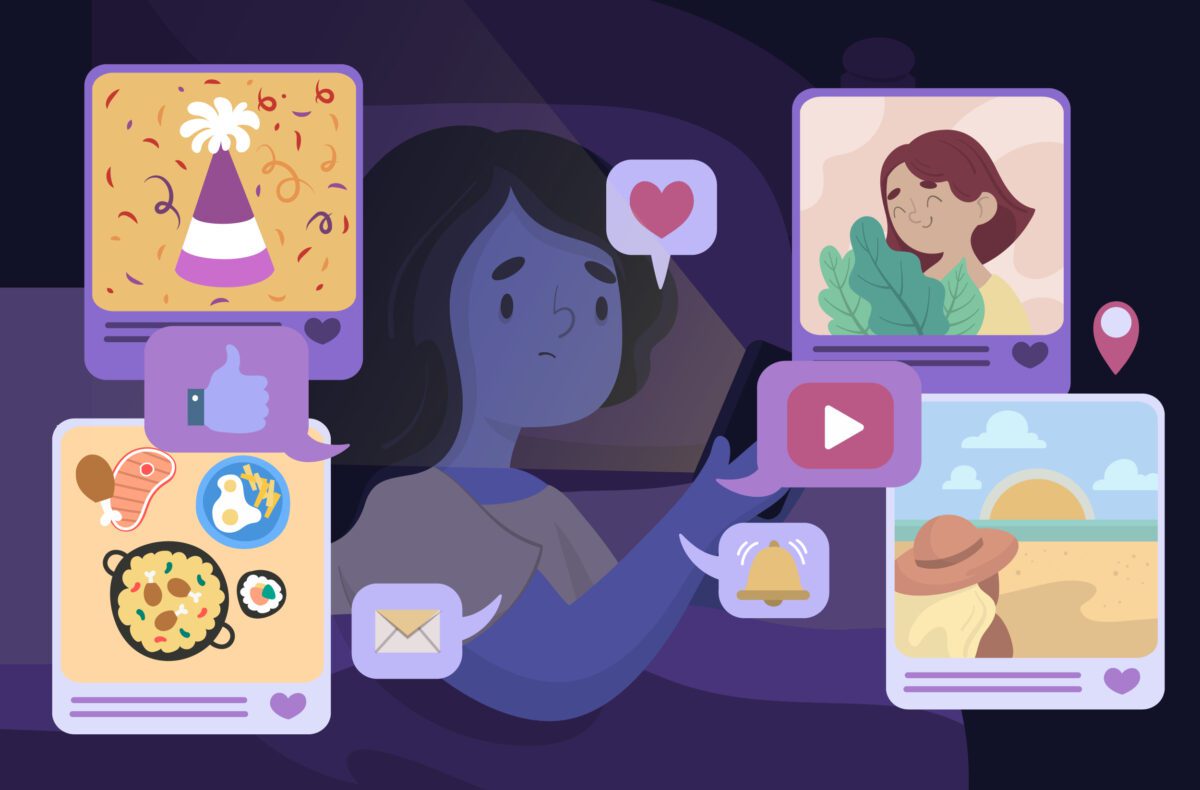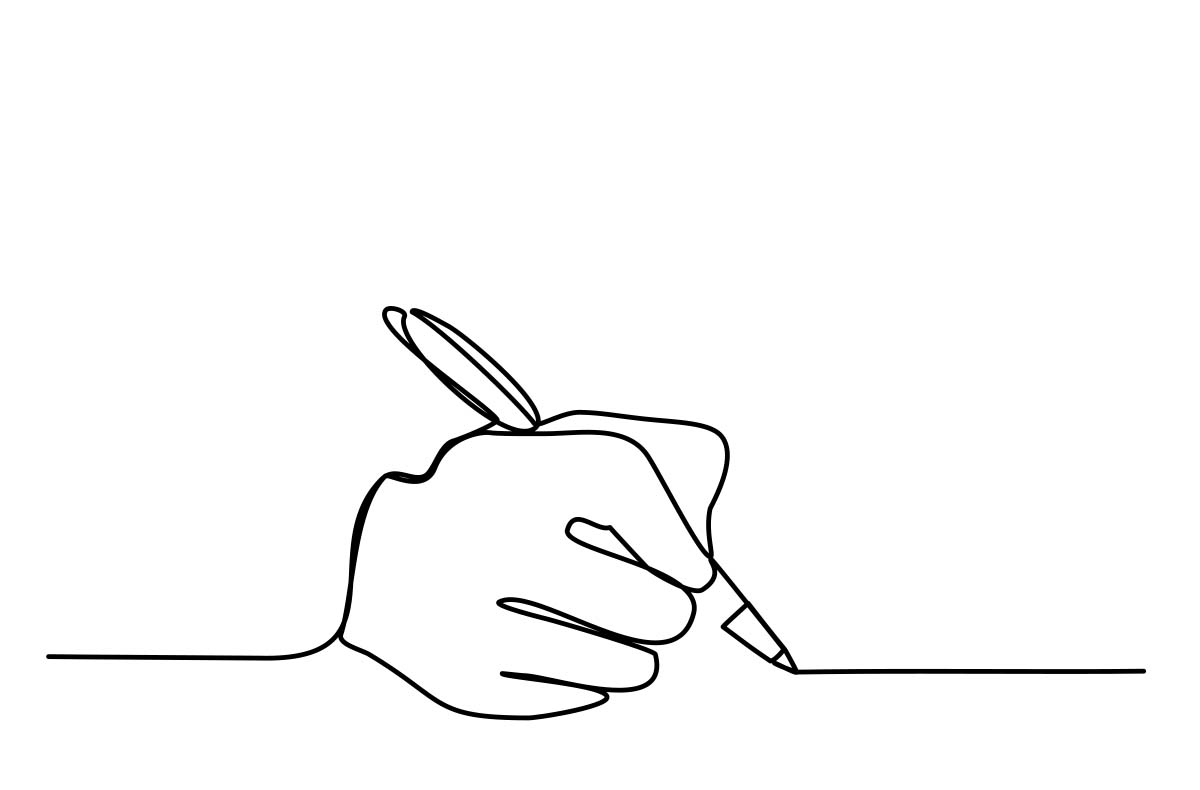
Sarah Wilson’s First, We Make the Beast Beautiful is a book dedicated to opening a more compassionate, comprehensive discussion about anxiety. In it, Wilson employs various metaphors to describe the experience of “the beast.” Anxiety is compared to having computer tabs opening rapidly in the mind, without being able to close them or prevent new ones from opening. Anxiety is likened to having the entirety of life constricted into an overflowing toothpaste tube. Anxiety is a tangled spider web that keeps getting caught in other webs the more one tries to untangle it. In short, anxiety can be an all-consuming overwhelming experience, and, quite frankly, not a fun one.
Whilst we all struggle with individual anxieties—some of us to a larger, less manageable extent than others—anxiety surrounding the current pandemic is unique precisely because it is being experienced collectively in the world. We can be pretty confident that most people have, at least at one point during the pandemic, experienced a form of anxious stress and worry. And no wonder this is the case: uncertainty and unpredictability are the petri dishes for anxiety to grow in. With every new variant of COVID-19 that emerges, we lose more trust in the world, we feel the very valid risk of experiencing threat, loss, tragedy, and trauma; we doomscroll media sites, wondering despairingly if this will ever end. Especially for marginalised communities in society, which have generally been more severely impacted by the pandemic in economic, social and psychological ways, the levels of anxiety experienced can at times feel debilitating.
Anxiety is often boiled down to a simple formula: overestimating the likelihood that the worst possible scenario in our lives will occur, and underestimating our ability to cope with that scenario, should it actualise. Although anxiety is, and often feels, infinitely more complex than that, if we take this formula at face value, we might be able to think of some important strategies to help us deal with our collective Covid anxiety. Firstly, we might try to gently challenge our anxious thoughts. Might we be catastrophising, honing our attention onto single negative events and blowing those out of proportion, whilst minimising our focus on other, more hopeful events? Are we over-generalising the conclusions we draw from small pieces of evidence, using words like “always” and “never”? Is our anxiety actually going to help us cope with our imagined worst-case scenario?
In Cognitive Behavioural Therapy, these are known as unhelpful or distorted thinking styles, and by questioning ourselves as to how true our thoughts really are, we can learn to challenge and re-shape them. Similarly, should our worst-case scenario actualise, we can ask ourselves what coping skills we have. How have we coped in the past with similar adversities? What support systems can we draw upon? Who can we be vulnerable with, and ask for help from? What are our top three strengths that may help us in difficult situations? What sources of hope can we lean on?
In an equal but somewhat paradoxical way, our anxiety might need to be simultaneously challenged and accepted. With regards to my own anxiety, I relate to it as both an experience and a part of me. The part of me who feels anxious might create an embodied experience of anxiety, but it is above all a part of me that needs to be understood and nurtured. In accepting our anxiety, we might tell ourselves that it makes sense to feel anxious at the moment. That it is understandable to feel this way when there is so much out of our control. That our anxiety is flaring up because it feels threatened, and whilst we don’t need to get sucked into its tornado-like process, we can listen to it and validate it.
If we don’t work on accepting our anxiety, we can easily get stuck in a process of feeling anxious about feeling anxious, or feeling frustrated with our anxiety, which can make the problem worse. A lot of the time, if we give our anxiety the space to express itself, we find that the immediacy and urgency of its response will cool down. In fact, if we find ourselves struggling with anxiety, regularly setting aside a period during the day to act as “worry time” can reduce our anxious thoughts at other parts of the day, making anxiety more manageable overall. Also, talking helps. Especially within the context of professional therapy, talking about what we are feeling can help us to see things from different perspectives: that our anxiety is one part of us or one of our feelings among many, that feelings constantly move and shift within us and anxiety will too, and that the entire world is feeling anxiety at present and so we are all in the same boat—a thought that I personally have found to be very helpful. Having a dedicated time in psychotherapy sessions to talk through anxieties can also help us become more self-aware, leading to a greater understanding of the unique factors that trigger our anxieties, and providing more opportunities to prevent manageable anxiety from seeping into unmanageable realms.
It is too simplistic to argue that we just need to “let go of things beyond our control.” However, during this scary time, it is important to find anchors of security for ourselves whilst tentatively beginning the process of being more comfortable sitting in the uncertainty.



